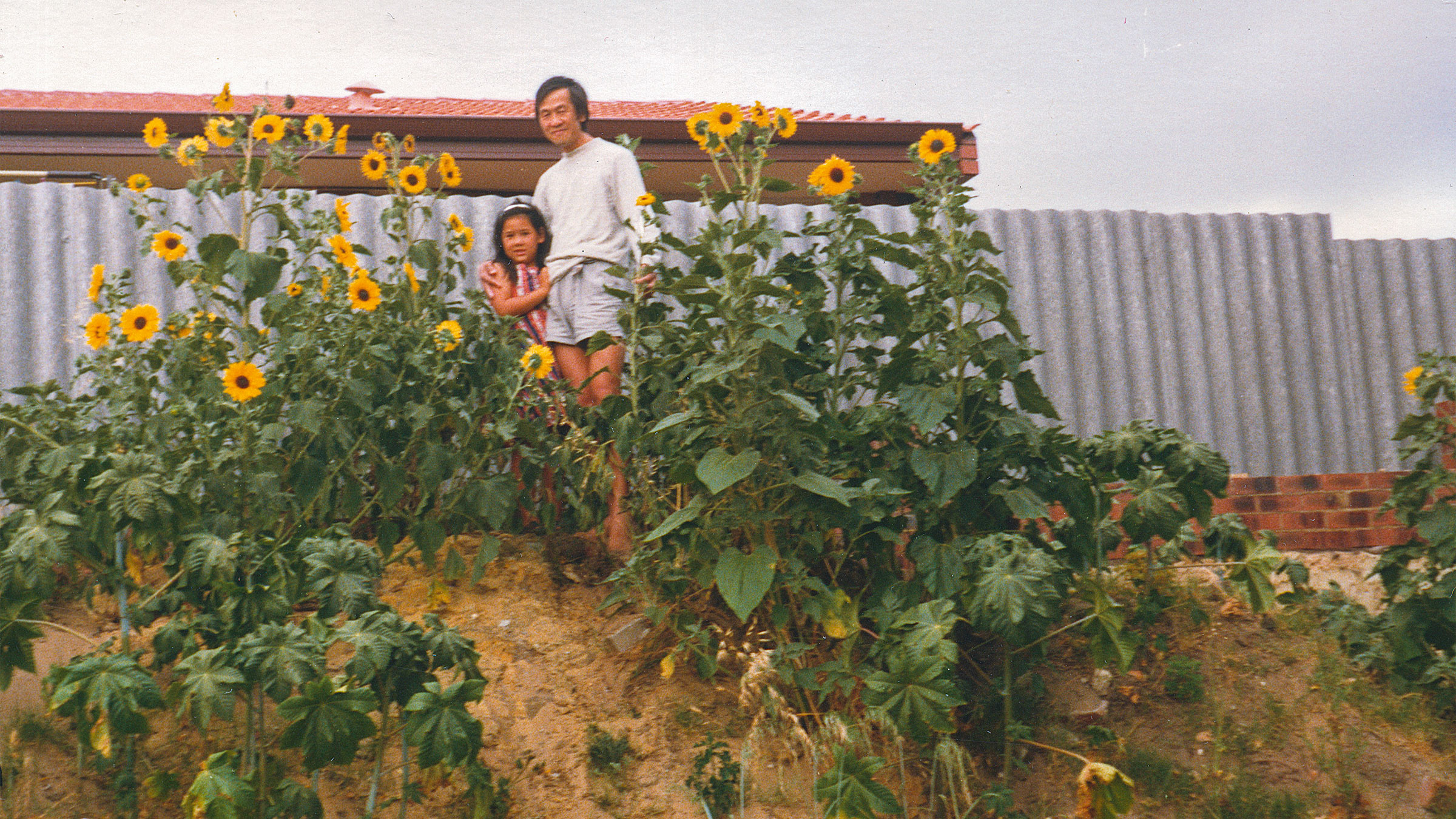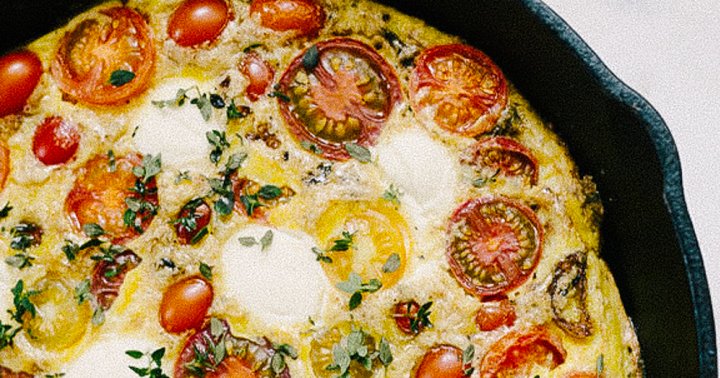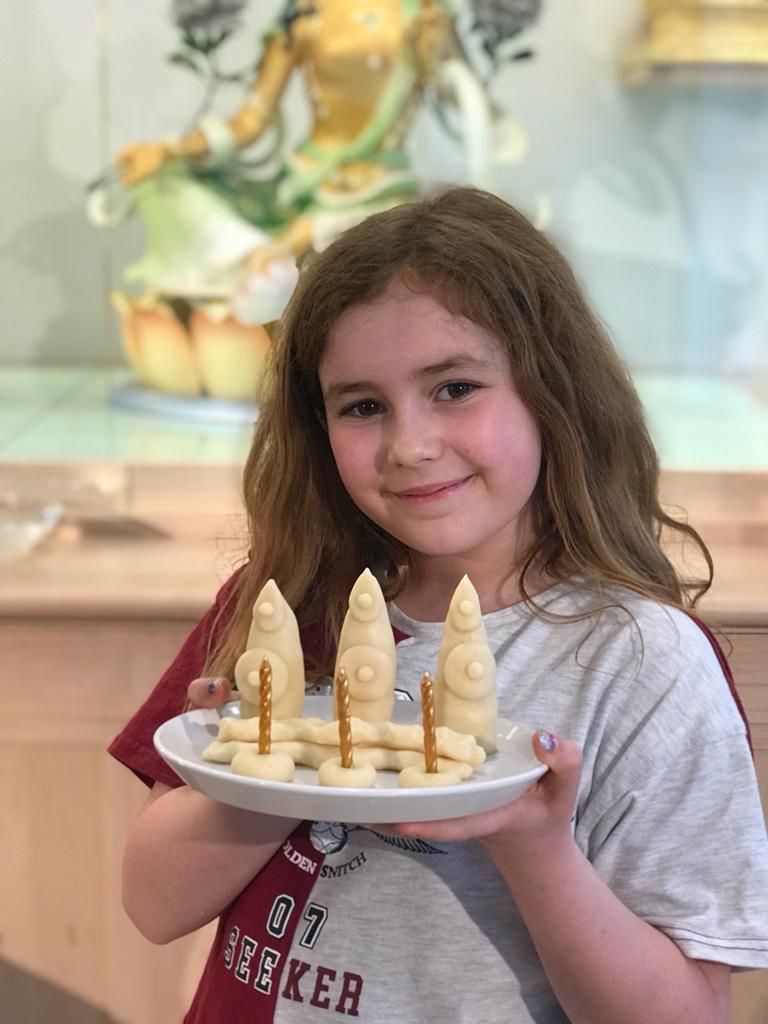That Time My Father Sued Me
Meeting legal action with loving-kindness, Mimi Kwa finds healing from intergenerational trauma. The post That Time My Father Sued Me appeared first on Lion’s Roar.

When I found out my father was suing me in the Australian Supreme Court, I blacked out and my hair turned grey overnight.
In the following adrenaline-filled days, I armored myself with evidence for the case. My late aunt Theresa, one of my father’s thirty-two siblings, had left me in charge of executing her last will and testament. My father, however, declared everything was his, making it clear he was prepared to lie in court to win her estate.
In suing me, my father demonstrated the generations-old Chinese belief about men’s superiority over women. My entire life, he’d told me that I “should have been a boy.” My father couldn’t abide that it was me, not him, who’d been given authority over his sister’s estate. As a child, I’d been caught up in my father’s hazy definitions of justice. I remember telling police he wasn’t home, and telling couriers serving court documents that they had the wrong address. Back then, he was known in the halls of the Australian Supreme Court as a vexatious litigant—a civilian without a law degree who nevertheless represented himself against individuals and corporations—but he could not be officially blacklisted from taking legal action. He won as many cases as he lost.
As a little girl, the only Asian at my school, I was often called names and told to “go back” to my own country, though I was born in Australia. But I’d grown up to become an established international news anchor, the first Asian Australian on a major television network, interviewing A-listers like Serena Williams, Ashley Judd, Heath Ledger, and Russell Crowe. Now, though, no amount of accomplishment could stop my past from catching up with me.
Stress crept into all areas of my life. My overwhelming feelings of dread regarding my father were overflowing into my feelings about my mother. She was living with me, my husband, and my four children. Soon after we’d taken her in, she was diagnosed with schizophrenia. Memories of my childhood—punctuated by her frequent self-harm and suicide attempts—bubbled up stronger than ever during my father’s lawsuit.
One day, in a crying heap, I begged the universe to make my suffering stop. As I sobbed, I felt myself falling into a dark emotional abyss. At the very bottom, a stillness enveloped me, and I let go. To unravel the mess that was now my life, I picked up a pen and began writing my memoir. Once I began researching my Chinese family history, something in me shifted.
“I realized connecting with the true spirit of my father was possible despite the walls of self-preservation we’d built over the years.”
My father, the youngest of dozens of siblings, had grown up during the Japanese occupation of British Hong Kong. Though his father was a wealthy silk trader, my father spent three years and eight months living through near starvation, lockdowns, no running water, and brutal treatment. He watched bombs rain on Hong Kong more than fifty times as the United States and Britain tried to drive the Japanese out. “It was like my own fireworks show,” my dad told me once.
My father saw civilians bayoneted in the street, and he saw others perish when his entire road was flattened in warfare. He told me, “If you went in the bunker, you could be trapped and killed, so I went to the top of the hill not knowing if I would see my family again.” Dad was seven years old.
The more I learned and cultivated understanding for my father’s conditioning, the looser the clenched feelings I had toward him became. The Dalai Lama’s book The Art of Happiness had always sat on my nightstand, but I hadn’t properly read it. Now, dipping into Buddhist teachings, I began reading about the power of being present. When I read the Buddha’s words, “Conquer anger with non-anger. Conquer badness with goodness. Conquer meanness with generosity. Conquer dishonesty with truth,” I realized I couldn’t fight fear with fear any longer.
I practiced loving-kindness meditation for myself and my father by sitting on my balcony facing in the direction of his house and sending loving-kindness his way. Intense negative emotions melted as I shed my outer armor. I could finally see my father’s behavior was a result of past experience.
One day, I visited my father, held his hands in mine, and thanked him for suing me. I said, genuinely and openheartedly, “I love you so much, Dad. If you didn’t take me to court, I’d never have understood you or myself. I’d never have appreciated you for doing the best you could. I’m so grateful to you for surviving and for having me.”
Breathing slowly and consciously, I stayed present in my body and in the moment, and I visualized my heart opening. This was unhindered loving-kindness. I looked deep into his eyes, and in that moment, I realized connecting with the true spirit of my father was possible despite the walls of self-preservation we’d built over the years. Then, I forgave him for all his fatherly mistakes and was overwhelmed with love.
Now, whenever I’m feeling triggered by my father or mother, loving-kindness practice helps me remember that my parents did the best they could with the conscious awareness they had at the time. Rather than making excuses and fleeing like I used to, I breathe intentionally and put an imaginary hand on my heart to soothe and nurture the ache I often feel in the presence of my parents. I quietly say to myself, “They’re doing the best they know how to do.” I apply the concept “strong back, soft front” to create safe emotional boundaries. I acknowledge when their behavior is harming me, mindfully leave their presence with friendliness, and send love from my open heart.
I now have a gentle awareness of myself and my behavior. Knowing my conditioning isn’t who I am allows me to extend loving-kindness to my father, my mother, and all living beings with whom I share struggle, grief, and despair.
Using these practices with my parents has helped me with my husband and four teenagers. Sometimes I can be mid-argument with my husband or child, and then say in the same energetic tone, “I know I’m coming from ego right now. This isn’t how I want to act. I need to be alone for a minute. I’m finding it difficult to be present right now.” Speaking aloud my observations helps me identify what’s happening in the moment. Once I recognize that I’ve lapsed in practice, I pull myself back to kind intention. Sometimes I put a hand on my heart to forgive myself for getting cross or being impatient. If needed, I apologize. The spiritual muscle strengthens each time.
I use Tara Brach’s RAIN (Recognize, Allow, Investigate, Nurture) technique to recognize that when I’m judging or blaming any of my children, it is out of my own fear for their happiness and success as well as my own ego desire to be regarded as a good parent and not have their perceived failure reflect on me. I love watching myself in the fine balance of allowing and letting go, of playing protector and guide with well-meaning expectations. When I include Buddhist ideas in our daily discourse at home, I’m very conscious of teaching by example rather than preaching. My practice reminds me to come back to what I know is true, and it’s this remembering that continues to heal me.

An international news anchor, Mimi Kwa was the first Asian Australian on a major television network. She’s also the author of a new memoir, House of Kwa.

 MikeTyes
MikeTyes 









![Language101 Review: I Wouldn`t Recommend At All [2021]!](https://www.dumblittleman.com/wp-content/uploads/2021/09/Language101-Review.png)









.jpg&h=630&w=1200&q=100&v=6e07dc5773&c=1)












